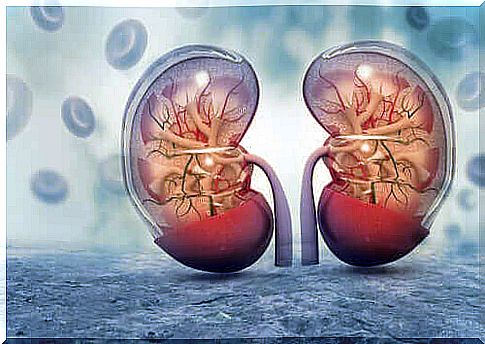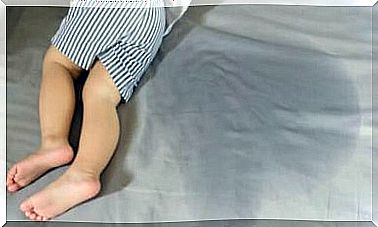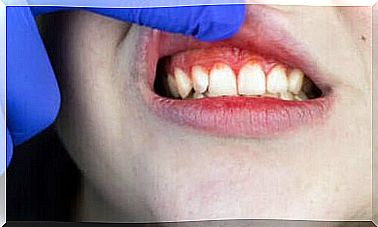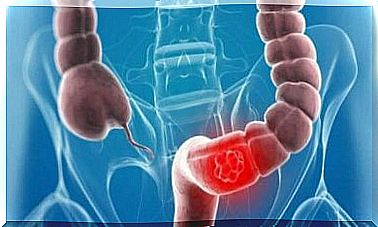Polyuria – Characteristics And Treatments

Polyuria is a medical term that refers to an increase in the production of urine. An adult gets this diagnosis if their body produces more than three liters of urine a day. For children, it is more than two and a half liters within 24 hours.
There are other similar concepts that do not really mean the same thing. For example, pollakisuri, where a person urinates several times a day but their total amount of fluid is normal. Likewise, there is nocturia, which occurs when a person has to interrupt his sleep to urinate at night.
There may be polyuria with nocturia or polyuria with pollakiuria, but they are not the same. Additionally, there may be an increase in the volume of urine without other signs as well. In any case, this is just a symptom and not a disease in itself. In order to find out what the underlying disease is, one must therefore be diagnosed.
The amount of urine produced in 24 hours depends on three factors:
- How much fluid enters the body.
- The substances that the body must eliminate. This is because urine is a bodily mechanism that it uses to remove elements that it does not need. The amount excreted is also a factor.
- The function of the kidneys, since urine is a product of the kidneys and depends on their ability to function properly.
General causes of polyuria
First, we can mention the general causes of polyuria so that we can explain the diseases that are the most common causes of this symptom later, in detail. Some reasons are due to events in everyday life, while others are more persistent:
- Increased fluid intake: It is obvious that the more fluid you drink in a day, the more your body needs to excrete. Here a person will face temporary, benign polyuria.
- Increased salt intake: Salt is a substance that can draw water. That is, it absorbs the body’s water and takes it with it to the kidneys, after which they excrete it from the body. When a person ingests very salty foods, they can expect an increase in the volume of urine. This is also a temporary form of polyuria.
- Urine-stimulating beverages: Certain liquids, such as beer, some types of tea and caffeine, can increase the volume of urine.
- Cold environment: When the environment is cold, the body detects it and it leads to vasoconstriction, which means that the diameter of the body’s blood vessels decreases. By making the blood vessels narrower, there is less room for blood, and thus the only way to get rid of extra fluid is through the production of urine.
- Use of diuretics: Doctors prescribe diuretics such as furosemide or hydrochlorothiazide for some ailments. This is because these drugs increase the volume of urine and lead to polyuria. It is a common side effect.

Specific diseases that lead to polyuria
Having described the general causes, we will now mention four diseases in which polyuria is a common symptom. Medical control is very important in these diseases as polyuria can be a huge problem.
Although polyuria is another symptom associated with these disorders, it causes additional problems when it gets out of control. Even then, the primary goal will always be to cure the underlying disease.
Diabetes
This is one of the most common causes of polyuria when it comes to diseases. It is common for the triad consisting of polyuria, polydipsia (increased thirst) and polyphagia (increased appetite) to be the first warning signs of this disease.
Polyuria responds to the body’s need to get rid of excess glucose, according to diabetes. With so much sugar circulating in the blood, the only way to get it out is by excreting it through the urine, thus increasing its production. This leads to the classic polyuria in these patients.
Heart failure
The heart is unable to pump the required amount of blood to the entire body. It therefore becomes an inadequate organ because it does not have enough strength to perform its contractions.
It is common for people with heart failure to experience polyuria because the failure of the blood circulation leads to an accumulation of fluids. The body thus removes the excess fluid through urine, often by increasing the amount at night.

High blood pressure in the arteries
People with high blood pressure show an increase in the amount of urine when they are not on medication or when the control of their disease is not sufficient. Sometimes, polyuria is the only sign of the presence of an invisible disease, such as high blood pressure.
High blood pressure affects the function of the kidneys, by changing the way a body filters blood and produces urine. Thus, it increases production. In addition to this, there is also involvement of mechanisms similar to those for heart failure.
Polyuria and renal failure
In general, there are not many people with kidney failure, but the disorder is pretty serious. In these cases, the kidneys are not sufficient because they are not able to filter the blood to produce urine properly.
As a result of poor filtration, the body not only loses these substances that need to get out of the body, but it also loses the beneficial ones, such as water among others.
Kidney failure can be a debilitating and complicated stage of other disorders, such as diabetes, or a result of mistreated infections, autoimmune attacks from the body, and even malignant tumors.
Conclusion
Polyuria is a symptom that is worth paying attention to. However, if you have eaten very salty foods or have been exposed to cold temperatures, then there is nothing to worry about. Just wait for it to go away on its own. However, you should talk to a doctor if it is persistent.
Medical professionals will perform the necessary examinations they need to be able to make a diagnosis and get to the core of the problem of polyuria. Once they have found the cause, they will decide the necessary treatment plan.









